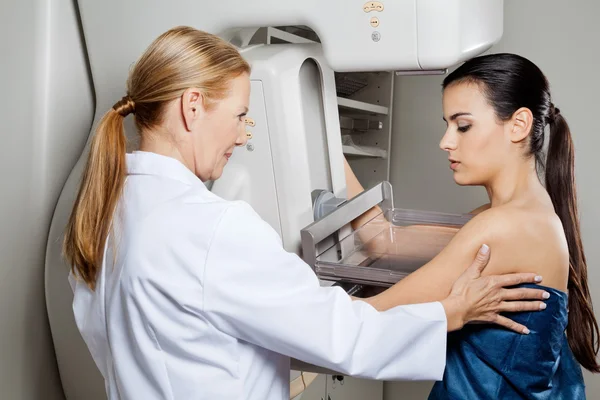Share this @internewscast.com
Get to know “Artificial Intelligence in Early Breast Cancer Detection” Artificial intelligence (AI) is revolutionizing the field of breast cancer detection, offering promising results for early diagnosis and improved patient outcomes.
AI algorithms are trained on vast datasets of mammograms and other medical images, enabling them to identify subtle abnormalities that might be missed by human radiologists. This can lead to earlier diagnosis when treatment is more effective and the chances of survival are significantly higher.

How artificial intelligence is used for the early detection of breast cancer?
Artificial intelligence (AI) is revolutionizing healthcare, and one of its most promising applications is in early breast cancer detection. AI models are being trained on vast amounts of medical data, including mammograms and other imaging scans, to detect cancer with greater accuracy and efficiency than human radiologists alone.
Here are some of the key research findings on AI in early breast cancer detection:
1. Improved Accuracy:
- Studies have shown that AI models can achieve accuracy levels comparable to, and even exceeding, those of expert radiologists in detecting breast cancer. This is particularly true for subtle lesions that may be missed by human eyes.
- A 2023 study published in Nature Medicine found that AI-assisted screening led to a 13% increase in the detection rate of invasive breast cancers while reducing unnecessary recalls by 14%.
- Another study published in JAMA Oncology in 2022 reported that AI-based second reading of mammograms increased the sensitivity for cancer detection by 16.4% compared to traditional radiologists alone.
2. Reduced False Positives:
Read Related Also: New mothers in England to be offered mental health checks
- AI algorithms can help to reduce the number of false-positive mammogram results, which can lead to unnecessary anxiety and biopsies for women.
- A 2021 study published in the Journal of the American Medical Association found that AI-based screening reduced the false-positive rate by 5.7% compared to traditional radiologists.
- This reduction in false positives can save healthcare systems significant resources and improve the patient experience.
3. Improved Workflow Efficiency:
- AI can help to streamline the workflow for radiologists by automating tasks such as image analysis and lesion detection.
- This allows radiologists to focus on more complex cases and provide more personalized care for their patients.
- One study found that AI-based workflow tools can reduce the time it takes for radiologists to read mammograms by up to 50%.
4. Personalized Risk Assessment:
- AI models can be used to develop personalized risk scores for breast cancer, which can help to identify women who are at highest risk for the disease.
- This information can be used to tailor screening regimens and other preventive measures for individual patients.
- For example, women with a high risk score may be recommended for additional screening tests or genetic counseling.
5. Early Detection of Aggressive Cancers:
- AI algorithms can be trained to identify aggressive forms of breast cancer that are more likely to progress and require more intensive treatment.
- This early detection can improve the prognosis for patients and increase their chances of survival.
It’s important to note that AI is still in the early stages of development for breast cancer detection. Further research is needed to validate the results of existing studies and to ensure that AI models are safe and effective for use in clinical practice.
However, the current research findings are highly promising and suggest that AI has the potential to significantly improve early breast cancer detection and save lives.
Here are some additional resources that you may find helpful:








